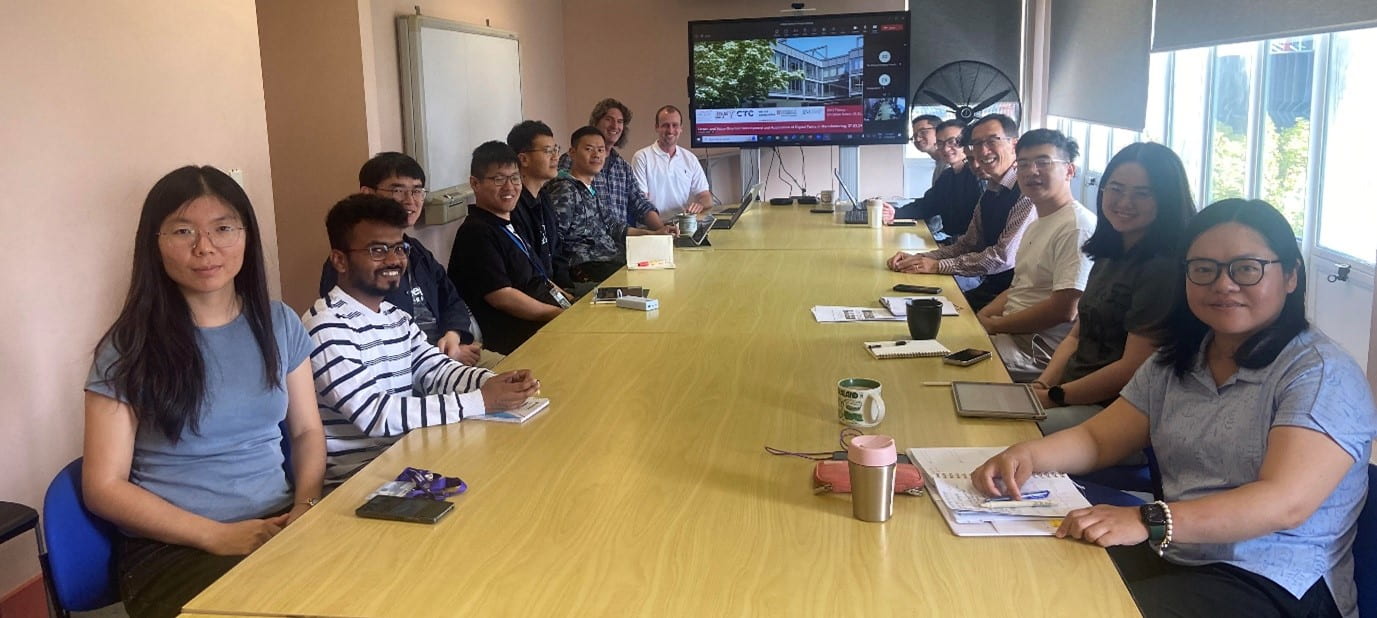
Christian Kober (8th from the left in the photo above) is a visitor of Jan Polzer. Christian is doing his PhD in Digital Twins (DT) and working on a journal paper with Jan.
Christian is currently a PhD Candidate and research associate at Helmut Schmidt University in Hamburg, starting his research in February 2021. He is also a visiting student at the University of Cambridge.
In this seminar, Christian first introduced the motivation and background of his research. He is working on a project called Laboratory for Intelligent Lightweight Production (LaiLa) in collaboration with Airbus (Composite Technology Center), sponsored by dtec.bw. One of the research questions Christian has explored is, “What are the reasons for the ineffective adoption of DTs in manufacturing organisations?”
In his talk, he identified three types of challenges for DT development and implementation: technical, organisational, and methodological. Common challenges among these aspects include high investment costs and unclear benefits. Overall, Christian aimed to develop a methodology for the target- and value-oriented development and application of Digital Twins in manufacturing organisations.
Christian suggests that DTs should not always pursue high-fidelity models blindly. Instead, the DT model’s level of detail should be defined based on the different requirements of enterprises. There are some enterprises that require simpler, low-cost DT solutions, which means high-fidelity might not be necessary. Additionally, DT projects can begin with a low-fidelity DT and gradually increase fidelity to meet needs. Projects that pursue complex, high-fidelity DTs from the beginning may fail early on.
His research focuses on how to efficiently and effectively develop and implement DTs. This involves several challenges, such as the people’s heterogeneous understanding of DTs. Based on various applications, the definition and types of DTs may differ. Decision-makers need to choose appropriate modelling methods for the DT based on their actual needs and goals.
After Christian’s talk, members of LISMS shared their current research and discussed questions about DTs with Christian. His current research can be found on his Google Scholar and ResearchGate profiles.
